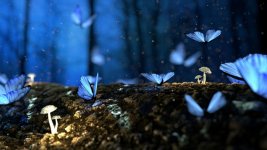
Human curiosity has always driven us to seek answers about the world we live in. From the motion of planets to the structure of cells, science provides a framework for discovery, innovation, and progress. One of the most fascinating branches of science is biology, the study of living organisms and their interactions with the environment. Whether you are a student, a professional, or simply a curious mind, taking the time to learn about science—especially biology—can deepen your understanding of life and open doors to new opportunities in education, health, and technology.
Why Learn About Science?
Science is more than just a subject in school; it is a way of thinking and problem-solving. To learn about science is to develop a mindset that values observation, evidence, and logical reasoning. This mindset empowers individuals to make informed decisions in everyday life, from understanding medical information to evaluating environmental challenges.For example, when people understand how vaccines work, they are more likely to protect themselves and their communities. Similarly, when we grasp the science behind climate change, we can make smarter choices to reduce our environmental footprint. Science is not distant or abstract—it is woven into the very fabric of our daily existence.
The Role of Science in Modern Society
In the modern era, science underpins nearly every aspect of progress. Medical breakthroughs rely on research in biology and chemistry, while advances in engineering depend on physics and technology. Learning about science also cultivates innovation. Entrepreneurs, doctors, environmentalists, and educators all benefit from a scientific foundation. Without it, society would struggle to solve pressing problems like disease prevention, food security, or sustainable energy.Biology: The Science of Life
Among the many branches of science, biology holds a special place. It seeks to understand life in all its forms, from the tiniest bacteria to complex human beings. By studying biology, we uncover the principles that govern living systems, including growth, adaptation, and reproduction.The Building Blocks of Life
At the core of biology is the cell, often called the building block of life. Learning how cells function gives insight into health, disease, and the intricate balance that sustains organisms. From DNA to proteins, biology explains the processes that keep life moving forward.Consider genetics, a subfield of biology. By studying DNA, scientists can trace inherited traits, diagnose genetic disorders, and even develop targeted therapies. This knowledge not only improves healthcare but also enhances our understanding of evolution and biodiversity.
Ecology and the Environment
Another key focus of biology is ecology—the study of organisms and their environments. As global environmental challenges become more urgent, ecology helps us understand how human actions affect ecosystems. Learning about the science of ecology allows us to protect endangered species, preserve forests, and combat climate change.For instance, biology explains the role of bees in pollination, a process crucial to food production. Understanding this connection emphasizes why protecting bee populations is essential to sustaining human agriculture.
Human Biology and Medicine
Perhaps the most relatable aspect of biology is human biology. It examines the structure and function of the human body, helping us understand how organs, systems, and cells work together. Medical research, rooted in biology, has led to life-saving discoveries such as antibiotics, vaccines, and organ transplants.For anyone interested in health and wellness, learning about science—especially biology—can make a profound difference. It equips individuals with the knowledge to maintain healthier lifestyles, interpret medical advice, and appreciate the incredible resilience of the human body.
How to Learn About Science Effectively
With the abundance of resources available today, it has never been easier to learn about science. From online courses to interactive apps, knowledge is just a click away. Museums, documentaries, and science blogs also make learning engaging and accessible to all ages.Practical Steps for Beginners
- Start with curiosity: Pick a scientific question that interests you, such as “How do plants make food?” or “Why do humans need sleep?”
- Use reliable sources: Books, peer-reviewed journals, and reputable websites provide accurate information.
- Engage in hands-on learning: Experiments, even simple ones at home, help reinforce scientific concepts.
- Join communities: Science clubs, forums, and discussion groups provide support and shared enthusiasm.
